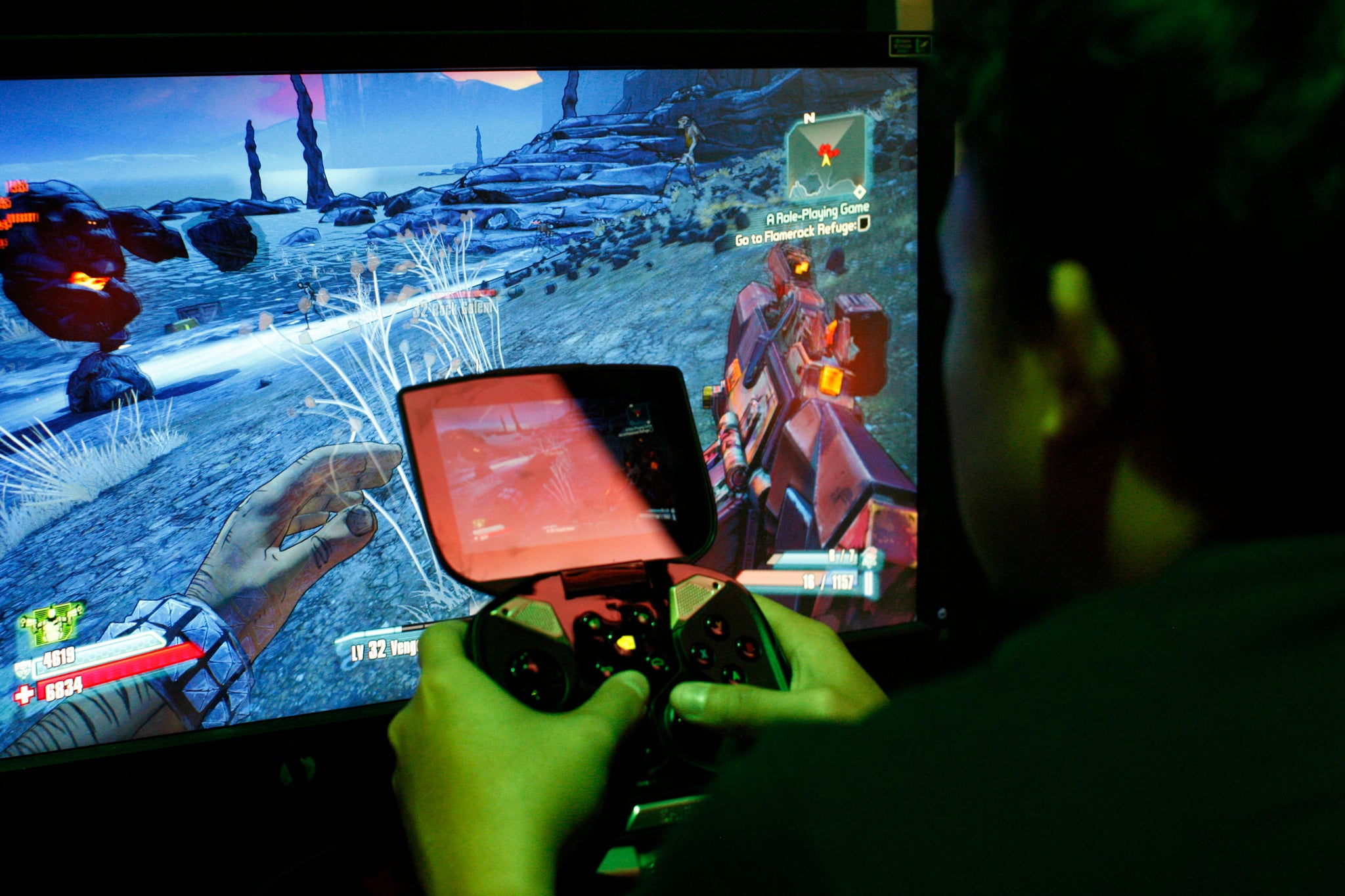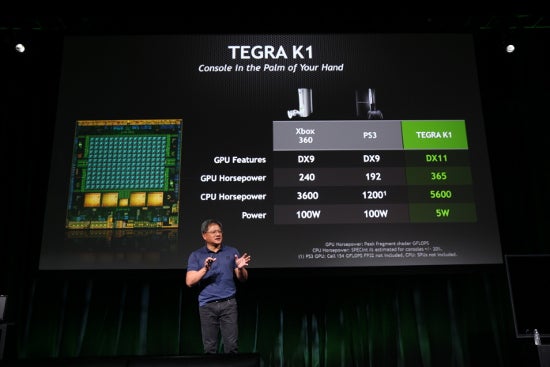CES Las Vegas 2014: Nvidia's K1 chip will give your smartphone better graphics than your console
The Tegra K1 also comes in a 64-bit variant and will be used to power self-driving cars

Chipmaker Nvidia has unveiled a new processor for mobile devices that it says will allow smartphones and tablets to offer better graphics than the PlayStation 3 or the Xbox 360.
"We've brought mobile computing to the same level as desktop computing, the same level as supercomputing," said Nvidia Chief Executive Jen-Hsun Huang at the Consumer Electronics Show (CES) in Las Vegas.
The new Tegra K1 utilises the same Kepler technology currently found in Nvidia’s high-end PC components and offers a substantial increase in power compared to the company’s current generation of Tegra 4 chips.
The K1 includes 192 GPU (graphical processing unit) cores, compared to the Tegra 4’s roster of 72. The latter chip is currently used in a range of mobile devices including Microsoft’s Surface 2 tablet, Asus’s Transformer Pad Infinity hybrid and Xiaomi’s Phone 3.
The introduction of the K1 is the latest move by Nvidia to increase its presence in the mobile computing market, with the company betting that the chip’s increased graphical capacity will entice more manufacturers as the mobile gaming industry continues to grow.

Nvidia will also introduce two specialised versions of the chip: one optimised for use in self-driving cars (the company has already made deals with Audi, BMW, and Tesla to use its technology in dashboard computers and navigation systems) and another featuring the 64-bit architecture most commonly found in PCs.
64-bit processors allow computers to use more memory (RAM) in a more efficient manner, and although they do not offer a distinct advantage for current mobile devices, future tablets and smartphones are expected to take advantage of their power.
Apple’s A7 chip, currently powering the company’s iPhone 5s and iPad Air, is based on a 64-bit design, although Mr Huang claims that the Tegra K1 will be three times mower powerful than Apple’s design according to the GFXBench 3.0 Manhattan test.
The 64-bit variant of the K1 will be built using Nvidia’s forthcoming dual-core Denver CPU, a chip based on designs supplied by British company ARM. The 32-bit chip is expected to appear in devices in the first half of 2014 with the 64-bit version following before the end of the year.
Join our commenting forum
Join thought-provoking conversations, follow other Independent readers and see their replies
Comments
Bookmark popover
Removed from bookmarks